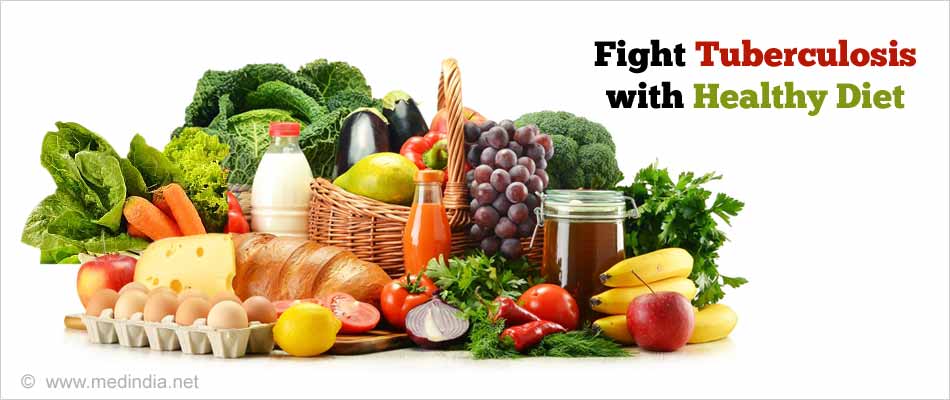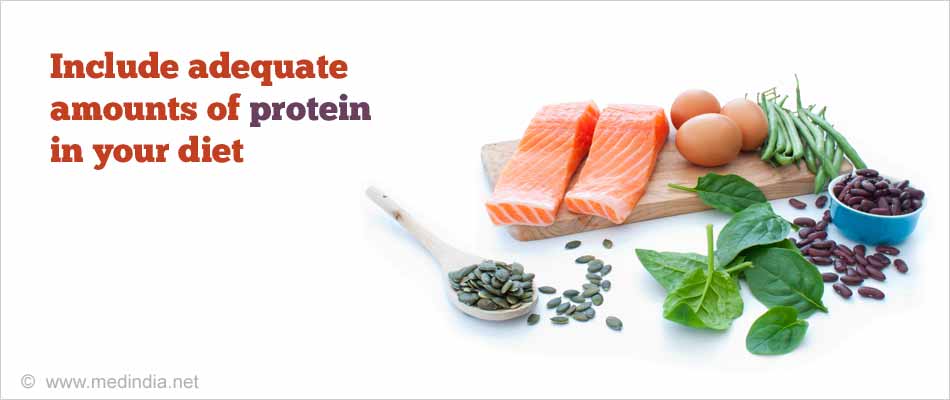- Gupta KB et al. Tuberculosis and nutrition. Lung India. 2009 Jan-Mar; 26(1): 9–16.
About
Patients with tuberculosis should eat a healthy diet so that they build up their immunity to fight against the disease.
Tuberculosis and malnutrition are closely related. While malnutrition can reduce immunity and make a person more susceptible to tuberculosis, tuberculosis can also lead to malnutrition. Tuberculosis reduces appetite, thereby reducing total food intake. In addition, it prevents the absorption of nutrients and micronutrients from the intestine. It also alters metabolism in the individual. Patients with severe tuberculosis often lose some of their muscle mass and appear wasted. Malnutrition has been associated with increased deaths in tuberculosis patients.

Malnutrition can result in a false negative tuberculin test in patients with tuberculosis, thus delaying the diagnosis in the patient.
Patients with tuberculosis have been found to have micronutrient deficiencies, which may affect their immunity status. Micronutrients are essential nutrients that are required by the body in small amounts. Patients with tuberculosis often suffer from deficiencies of zinc, vitamins including vitamin A, D, C and E, selenium, iron and copper.
Before the advent of antituberculosis drugs, nutrition played an important role in the treatment of tuberculosis. Even today, adequate nutrition can help the patient to recover faster with the treatment.
There is no prescribed diet for a patient with tuberculosis. A balanced diet could help to meet the nutritional requirements of the patient. Here are some guidelines that should be remembered while suggesting a diet for a tuberculosis patient:
A person with tuberculosis may have a poor appetite because of the disease itself and as a side effect of the medications. It is therefore necessary to recommend foods that the patient will enjoy eating. The patient may be recommended more frequent and smaller meals.

The patient should be advised adequate proteins in the diet. Tuberculosis can cause loss of muscle mass, which can be avoided by taking adequate protein. Foods rich in protein like meat, milk and milk products, pulses, fish and eggs can be recommended. Protein-rich drinks can also be advised, especially if the patient has a low appetite.

Micronutrients help to increase the immunity and are often deficient in tuberculosis patient. Foods rich in micronutrients should be advised to the patient. Vitamin A is present in liver, eggs, green leafy vegetables, and carrots. Vitamin B6 is present in cereals, meat and dry fruits. Citrus fruits are rich in vitamin C. Foods rich in iron include liver, kidney, whole grain cereals and dark green leafy vegetables. Fresh fruits and salad vegetables should form a part of the diet as they are not only tasty and easy to digest, but they are also rich in micronutrients. In addition, the patient should also be prescribed nutritional supplements to prevent their deficiency.
Children with tuberculosis require additional care in terms of nutrition. The dietary intake should be enough to tide with the disease as well as to ensure that the child’s growth is not retarded.
Alcohol should be avoided as far as far as possible. Alcohol damages the liver, and anti-tuberculosis medications also often affect the liver. Therefore, patients should be advised to keep away from alcohol.







